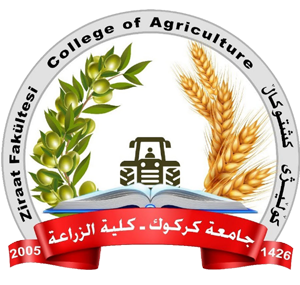The College of Agriculture discussed a master's thesis on studying the productive and physiological effect of local Awassi ewes dosed with an aqueous solution of spirulina algae with or without folic acid in the middle and late stages of pregnancy and growth indicators in newborns, by the student Teresa Sargon Emmanuel, and under the supervision of Assistant Professor Dr. Sarmad Abdul-Razzaq Abboud.
Due to the scarcity of studies and research in the field of testing the physiological effectiveness of spirulina algae and folic acid in causing noticeable changes in productive traits, growth indicators, biochemical and hormonal standards, the course of pregnancy and birth, the number of twins in ewes, and its effect on newborns as well, the current study aimed to shed light on this important and vital physiological stage of the stages of raising and producing Awassi ewes in Iraq.
The study concluded that feeding pregnant ewes with the aqueous extract of Spirulina algae powder with or without folic acid led to weight gain, increased feed consumption, increased feed conversion ratio, increased growth rate, increased number of twins, and improved a number of biochemical characteristics in blood plasma at the end of pregnancy, including lowering the percentage of glucose and liver enzymes AST, ALT, and a significant increase in the percentage of total proteins in the blood, globulin, and the hormones progesterone and prolactin.





